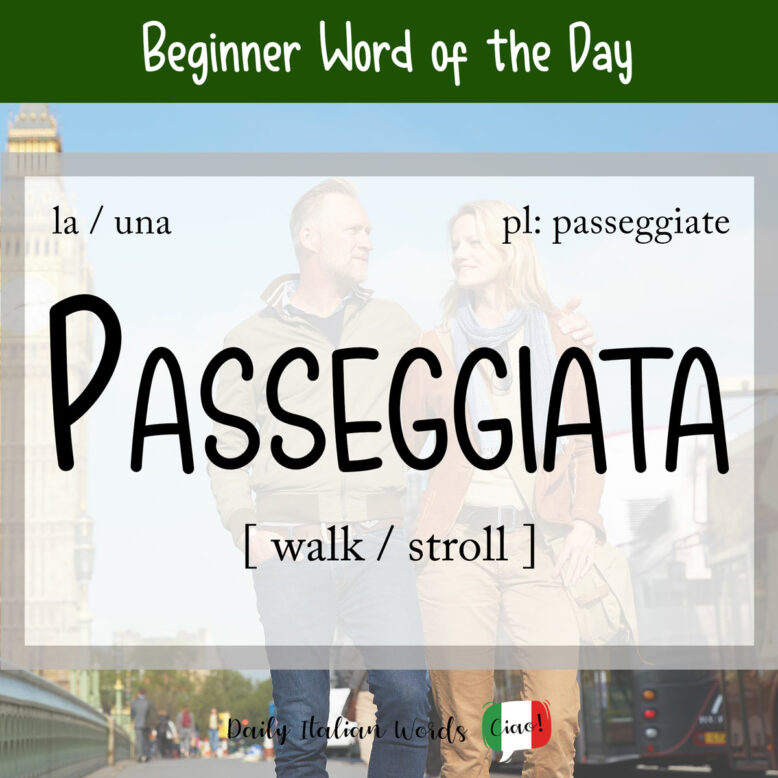Today we’re going to be looking at the Italian word passeggiata (feminine, plural: passeggiate) which means walk or stroll when the person in question travels on foot, or ride when they go by a means of transport such as a bus, car or horse.

Learn with our video
Passeggiata derives from the verb passeggiare which means to walk, stroll or amble.
To go for / to take a walk translates as andare a fare una passeggiata, or more simply, fare una passeggiata. If you take another person or an animal like a dog on a walk, you can use the expression portare (qualcuno / il cane) a fare una passeggiata.
Perché non andiamo a fare una passeggiata nel parco?
Why don’t we go on a walk in the park?

Passeggiata can also refer to a scenic path along which you can easily walk, with the best translations being promenade, walk, trail or boardwalk depending on where the path is located.
La passeggiata a mare si estende per circa due chilometri.
The seaside promenade is about two kilometres long.
In English, we often say that a task is a walk in the park, a cakewalk or a piece of cake if it is absurdly or surprisingly easy to accomplish, and Italians use passeggiata in a similar way.
Superare quell’esame è stato davvero una passeggiata.
Passing that exam was a real cakewalk.
Some other ways of saying ‘to go for a walk‘ in Italian include:
- andare a fare due / quattro passi = lit: to go make two / four steps
- andare a spasso = to go on a walk (for fun or without any real aim)
- fare una camminata = to go on a (strenuous) walk (to get in shape)
- andare a passeggio = to go for a walk / stroll
- andare a fare un giro / andare in giro = to go for a walk (quick and fun with stops along the way, often in the city)

This article is also available in video format on our YouTube channel. The audio version can be found on Podbean, Google Podcast, Apple Podcast and Spotify.
Heather Broster is a graduate with honours in linguistics from the University of Western Ontario. She is an aspiring polyglot, proficient in English and Italian, as well as Japanese, Welsh, and French to varying degrees of fluency. Originally from Toronto, Heather has resided in various countries, notably Italy for a period of six years. Her primary focus lies in the fields of language acquisition, education, and bilingual instruction.


